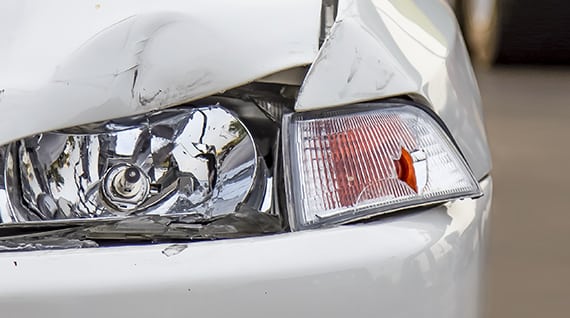RESULTS from a new ICBC customer survey shows that 47 per cent of customers feel that committing auto insurance fraud is an accepted practice in B.C.
In fact, 79 per cent believe that up to half of all claims made with ICBC contain an element of fraud.
While ICBC knows that the vast majority of its customers are honest, and that industry estimates say that fraud affects only about 10 to 20 per cent of all claims, the perception that British Columbians condone insurance fraud is troubling.
The survey showed that respondents:
-
believe that most ICBC claims contain an element of fraud,
| Extent of fraud | Percentage of respondents who agreed |
| more than 50 per cent of all claims | 14 per cent |
| 21-50 per cent of all claims | 30 per cent |
| 10-20 per cent of all claims | 38 per cent |
| less than 10 per cent of all claims | 11 per cent |
| 0 per cent of all claims | 0 per cent |
| don’t know | 7 per cent |
- have heard stories from other people of someone committing fraud (54 per cent), and
- and personally know of someone who has intentionally committed fraud against ICBC (17 per cent).
“It’s disturbing to hear from our customers that they feel our society has gotten to a point where committing fraud is simply accepted,” said Chris Fairbridge, Manager of ICBC’s Special Investigations Unit. “To us, small lies and the exaggeration of truth are serious offenses and will not be tolerated. B.C. drivers are financially impacted by every case of insurance fraud, and we need the public’s help to identify and report fraud as soon as they suspect it.”
The most common examples of fraudulent claims that ICBC sees are exaggerating the extent of injuries or damage to a vehicle, claiming old damage, claiming an inability to work despite having fully recovered from a crash, excluding a previous medical condition and providing a false or misleading account of how a crash happened.
Last year, ICBC’s Special Investigations Unit completed more than 16,000 investigations for suspected fraud, of which 54% were found to contain an element of fraud. Guilty individuals have served jail time, paid substantial fines, had their claim denied or reduced, paid for the other party’s repair costs, denied future optional coverage and entered into a restorative justice program.
“From using technology to catch anomalies, training our adjusters to sniff out scams and expanding our investigation team to catch fraud in the act, ICBC continues to ramp up its efforts to put an end to these dishonest acts, large and small,” said Fairbridge.
Insurance industry studies estimate that fraudulent and exaggerated claims make up about 10 to 20 per cent of all claims costs, potentially adding more than $100 to everyone’s annual ICBC auto insurance bill.
British Columbians can report suspicious activities related to insurance fraud to ICBC’s toll-free tips line at 1-800-661-6844 or submit a tip online. Tip information is confidential and callers can remain anonymous. For more information, visit icbc.com/fraud.
(The survey conducted by ICBC through its Customer Advisory Panel. Total respondents = 1,373. Data collected April 12-19.)
Summary on video:
The claimant pursued a claim for injuries sustained in a crash that occurred in Vancouver in January 2017. The claimant provided a statement to ICBC alleging that another vehicle had rear-ended him at a gas station in Vancouver.
CCTV footage from the gas station showed the claimant had actually reversed into the other vehicle. The other driver was pumping gas at the time, and there were no passengers.
In March 2018, the claimant who was charged with providing a false statement contrary to Section 42.1 of the Vehicle Insurance Act, entered a guilty plea. He was fined $2,000, ordered to pay a $300 victim surcharge and must repay ICBC for the cost of repairing the other driver’s vehicle. ICBC is considering denying the claimant the ability to purchase optional coverage through ICBC in the future.
















